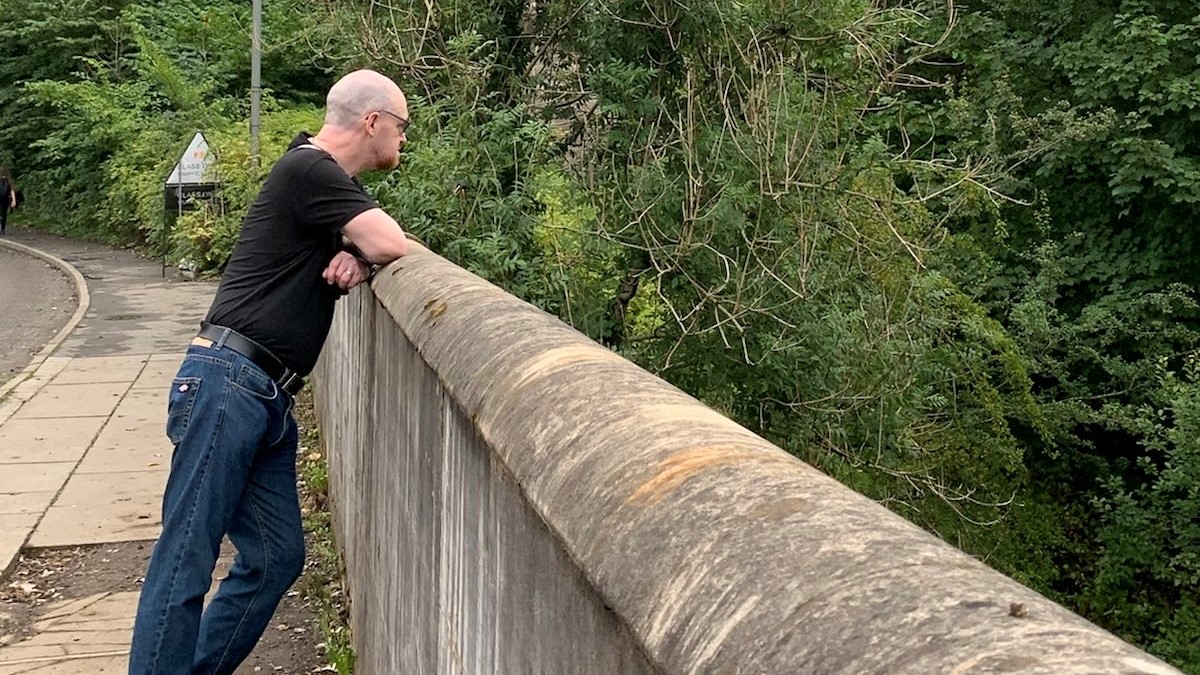Most Zen monks in the west only wear their robes for ceremonial purposes. But I’ve found that when I’m on my way to or from the zendo and wearing my robes, strangers in the street will approach me, wanting to talk. It’s not usually that they’re interested in Buddhism, it’s that they’re lonely and feel isolated and need someone to talk to, and the robes give them an invitation, or maybe just an excuse, an icebreaker.
I live in one of Glasgow’s most deprived areas. Life expectancy here is 14 years less than in more affluent areas — and it was that way before the pandemic. Scotland has by far the highest rate of drug-related deaths in Europe. Five years ago, a report by Voluntary Health Scotland identified loneliness as both “a determinant and a symptom of health inequalities.” Put simply, people who are socially disadvantaged were more likely to be lonely even before lockdowns and distancing became facts of life and death.
And so I’ve come to think it’s important for clergy of whatever religion to wear robes or habits when out and about, to show our availability to people in need of comfort.
I walk a lot, and the difference between how people respond to me when I’m in robes is dramatic. I am, unfortunately, a thuggish-looking guy (the shaved head probably makes it worse), and when I’m in civilian clothes strangers in the streets or parks often look nervous, glancing away or even changing direction to avoid me. But, when I’m in my robes, not only does that not happen, but people look at me, make eye contact, smile, often say, “Hello.”
And sometimes they say more. I like how one person started a conversation with me: “What are you?”
A good, and useful, question. I answered, “I’m a Zen Buddhist monk.”
But what is that? Not someone who meditates in an attempt to be saved from suffering, but someone who has taken a vow to save all beings. And how do we do that?
Not by preaching. Unsolicited advice on meditative practice won’t help anyone. As any Dharma teacher knows, solicited advice, given to practitioners who have taken us as their religious advisor, may not even be helpful.
A person who’s hurting doesn’t need advice. They need to know they’re not alone. This is why the bodhisattva promises to be the last person to leave hell, refusing to leave for as long as anyone is still there.
The most terrifying feeling is surely that of being alone. If you doubt this, I challenge you to think of a single horror film that does not depend upon that fear.
So, when strangers ask about my robes, and I tell them I’m a Zen monk, sometimes they ask about Buddhism or meditation, or ask me what I believe. But usually, they tell me what they’re sad or angry about, or what they’re afraid of. And they teach me that the best way I can share the Buddha Dharma, practice the Way of Compassion, is not by writing, or giving sermons, but by putting on my robes and going out for a walk — showing up, being available, today, meeting people where and who they are. Who we are.


